Funded under the National Recovery and Resilience Plan (NRRP), Mission 4 Component 2 Investment 1.3, Theme 10.
Between food systems that fail to provide nutritious and healthy diets for children and healthcare systems that do not address obesity before complications arise, childhood obesity is a complex phenomenon intertwined with inequalities in access to healthy food and economic, social, and structural factors, such as pervasive marketing.
To prevent it, it is crucial to adopt a multidisciplinary and multidimensional approach, with school and family playing a central role.
Therefore, it is necessary to take action from the earliest stages of life with educational projects on nutrition and sustainability, actively involving not only children but also families and teachers.
Childhood obesity is one of the main public health challenges in Europe. According to data from the fifth edition of the European Childhood Obesity Surveillance Initiative (COSI), collected between 2018 and 2020, 29% of children aged 7 to 9 in the 33 participating countries were overweight or obese. This alarming statistic indicates that nearly one in three children is dealing with weight-related issues, with a higher prevalence among males (31%) compared to females (28%).
The World Obesity Atlas 2023 (World Obesity Federation) forecasts a 61% increase in the number of males and a 75% increase in the number of females aged 5 to 19 living with obesity in the OMS European Region between 2020 and 2035.
In Italy, data from the 2023 national surveillance system OKkio alla Salute, coordinated by the National Center for Disease Prevention and Health Promotion of the Italian National Institute of Health, indicate that 19% of children aged 8-9 are overweight, while 9.8% are obese, including 2.6% with severe obesity. Since 2008, the trend in overweight has been decreasing, while obesity, after an initial phase of decrease, has stabilized with a slight increase in 2023.
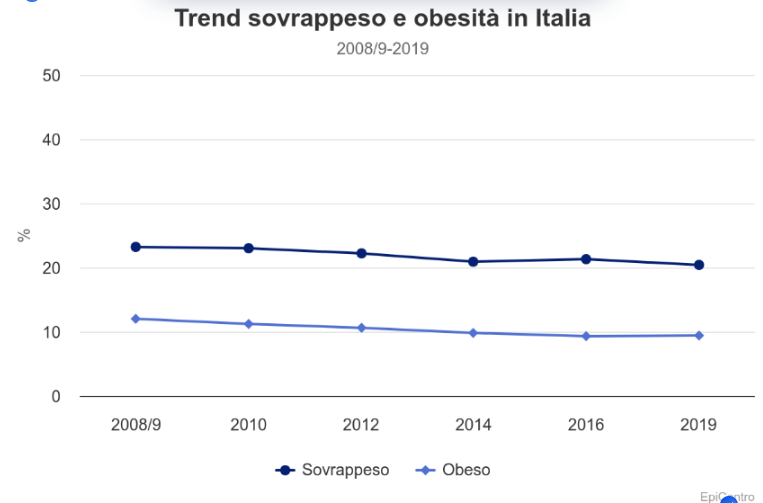
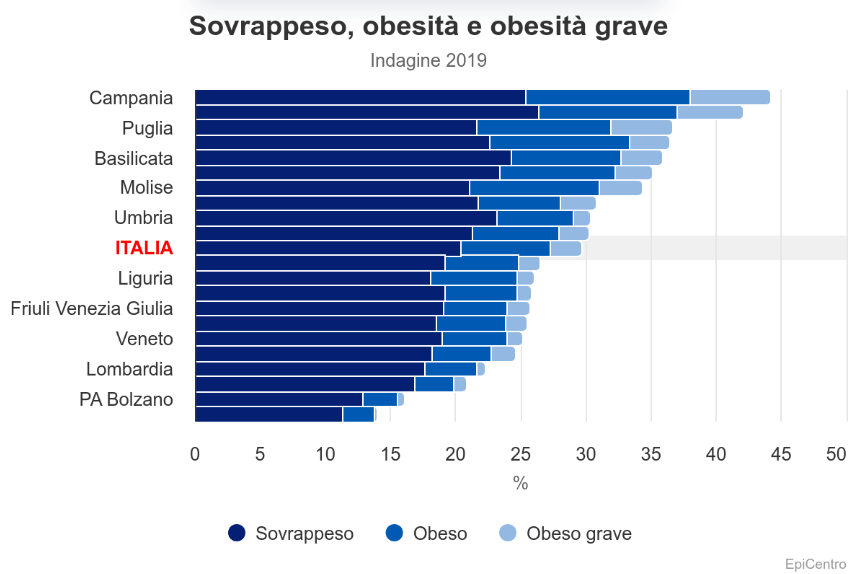
These findings reflect a food system that fails to provide healthy and sustainable diets for children, and healthcare systems that do not address obesity before health complications arise.
In many contexts, this situation is further getting worse by inequalities, including economic, social, and structural factors such as pervasive marketing and inadequate healthcare coverage. These issues expose many children to obesogenic environments that do not promote proper nutrition and an active lifestyle. Instead, they encourage unhealthy food choices and sedentary behavior, leading to an increased risk of overweight and obesity. The prejudice and stigma that many young people with overweight and obesity face daily also harm their mental health and self-esteem.
While it is clear that preventing childhood obesity is a priority in the healthcare sector, the most effective strategies for prevention remain less evident.
Scientific evidence points towards the adoption of integrated and multidimensional approaches to the issue, considering all factors related to obesity (genetic components, psychosocial factors, environmental influences, socio-economic status, behavioral attitudes, and lifestyles). This involves engaging multidisciplinary research teams (including nutrition biologists, dietitians, pharmacologists, and psychologists), as well as schools and families.
There is increasing emphasis on food education rather than just nutritional education, transcending the concept of nutrition to include the history, culture, and shared identity of food. Such a comprehensive framing, akin to the issue of childhood obesity, requires the participation of multiple actors and diverse institutions. It begins with the family and extends to schools, a privileged context for relationships and community, before enriching the family dimension once again.
According to a 2018 review published in Lancet Diabetes and Endocrinology, which analysed scientific literature on childhood obesity up to May 23, 2017, school-based interventions combining dietary and physical activity components and including a home element are the most effective in preventing childhood obesity. They show promising results in reducing body mass index (BMI) and the prevalence of overweight and obesity among children.
Hence, there is a clear need for further efforts to implement long-term educational interventions that, involving teachers and families, become integral parts of school programs.
The applied research project Lively ((MuLtidimensional school-based and family Involved interVentions, to promote a hEalthy and sustainable LifestYle for the childhood obesity primary prevention), coordinated by Dr. Carlotta Franchi, head of the Laboratory of Pharmacoepidemiology and Human Nutrition at the Mario Negri Institute in Milan, and implemented in collaboration with the Laboratory of Dietetics and Clinical Nutrition and the team from Officine Creative at the University of Pavia.
Lively falls within the activities of OnFoods Spoke 7, the research line dedicated to policies, behaviors, and education towards healthy and sustainable diets. Specifically, it is part of Work Package 7.2, which works to identify strategies for improving dietary behaviors in specific environmental contexts.
The main objective of the ongoing project is to describe the prevalence of overweight and obesity among primary school children in the study area. As Maria Vittoria Conti, specialist in Food Science and Researcher at the Laboratory of Dietetics and Clinical Nutrition at the University of Pavia, explains, "through the use of specific questionnaires, determinants of overweight and obesity such as socio-demographic characteristics of children and their families, dietary habits including adherence to the Mediterranean diet, lifestyle factors including sleep habits, screen time and physical activity have also been investigated. Additionally, another objective is to evaluate the feasibility of the multidimensional educational model implemented and the degree of appreciation by the individuals involved."
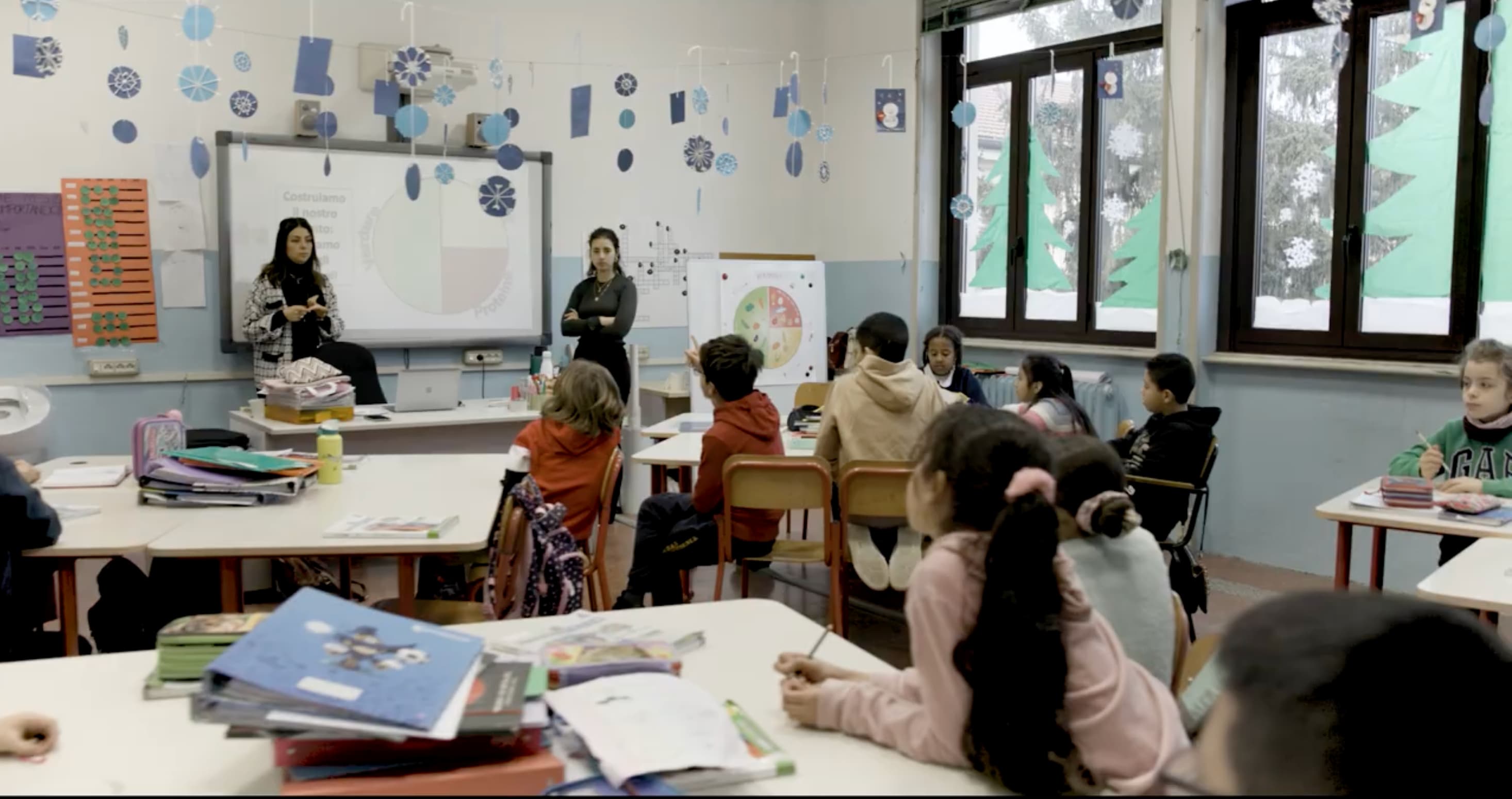
The study focuses on the design and evaluation of a multidimensional educational intervention that directly addressed themes of proper nutrition, lifestyle, health status, and sustainability with students, teachers, and families, involving 14 classes (from second to fifth grade) and 227 children from Luigi Cadorna Primary School in Milan.
The course was divided into modules covering various aspects of nutrition and healthy lifestyle. “The first two modules - explains Sara Basilico, specialist in Food Science and PhD student at the Laboratory of Dietetics and Clinical Nutrition at the University of Pavia - laid the foundations for a healthy diet by comparing foods to building blocks, with larger pieces representing macronutrients and smaller pieces representing micronutrients. To emphasise the importance of micronutrients for our health, vitamins and minerals were compared to superheroes. Digestion was explained as a journey that food takes inside the body, using posters and animations to make the concepts more understandable and enjoyable”.
To explain the frequency and variety of foods, the concept of the Transcultural Food Pyramid was introduced. It shows to children the importance of certain foods in their daily diet compared to others to be consumed occasionally. To delve further into the concept of frequency and how to compose a balanced plate, the "Healthy Plate" was presented, demonstrating the correct combination of macro and micronutrients within a meal, enabling children to create balanced meals both at home and in the school cafeteria. Finally, the last module focused on activities that children can and should engage in to ensure active and non-sedentary days. This included discussions on reducing screen time, the importance of physical activity, and the quality of sleep. The next objective of the project is to assess possible changes in children's diet and lifestyle, as well as in family behavioral attitudes, 6 and 12 months after the end of the course.
In the meantime, the project has already yielded some preliminary results, starting with the enthusiasm shown by teachers, young students, and their families for the project.
On May 22nd, a first event was organized to "report back" on the progress made by the research group and to thank the participants and the Luigi Cadorna Institute in Milan. Over 200 participants attended the event.
As a conclusion to this significant first part of the project, the initial research products were also delivered: the educational materials from the course, the documentary produced by Officine Creative, the educational placemats (featuring a healthy plate on one side and practical tips on how to consume a balanced and healthy breakfast every day on the other), and an e-book of multicultural recipes scheduled for release in June 2024.
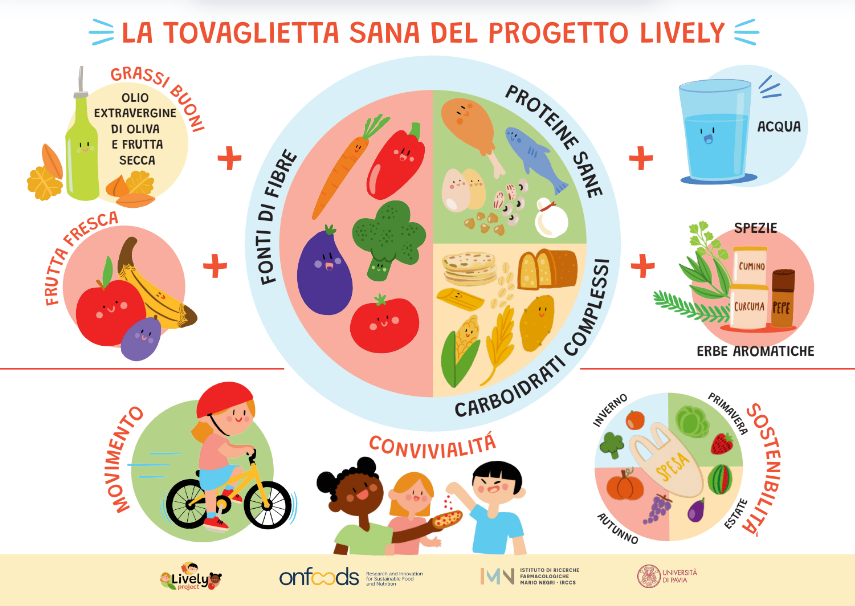
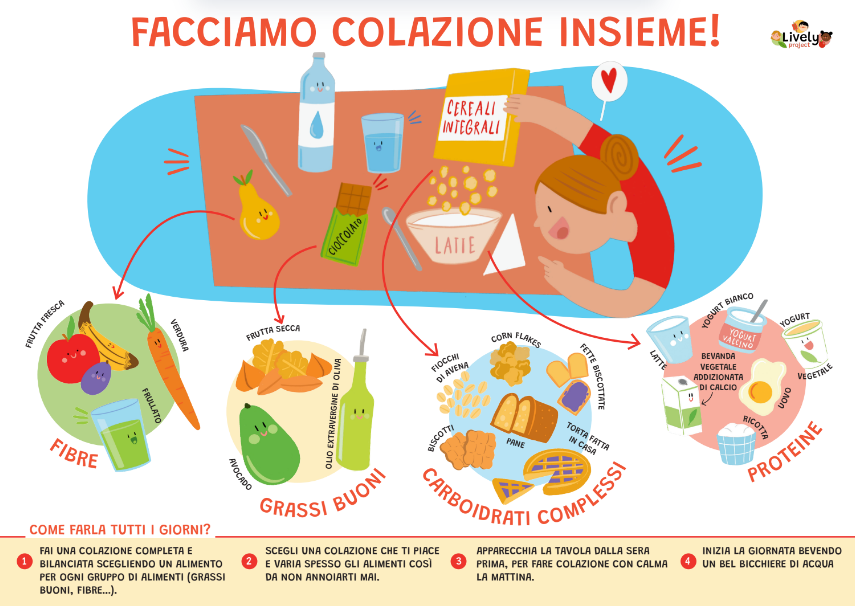
As one parent shared at the event, "Before the family Lively experience, my son didn't really pay much attention to breakfast, trying to get it over with as quickly as possible. Now he sits down more relaxed and enjoys his first and important meal of the day with peace and satisfaction. The educational placemats will further help to make them more attentive and sensitive to the breakfast moment."
Now all that remains is the phase of monitoring and evaluating the effect of the intervention on anthropometric measurements and the habits of children and families, 12 months from the start of the project.
This blog post is related to
Policy, behaviour and education
Smarter behaviors for healthier diets
Principal investigators
Referred to
Spoke 07

